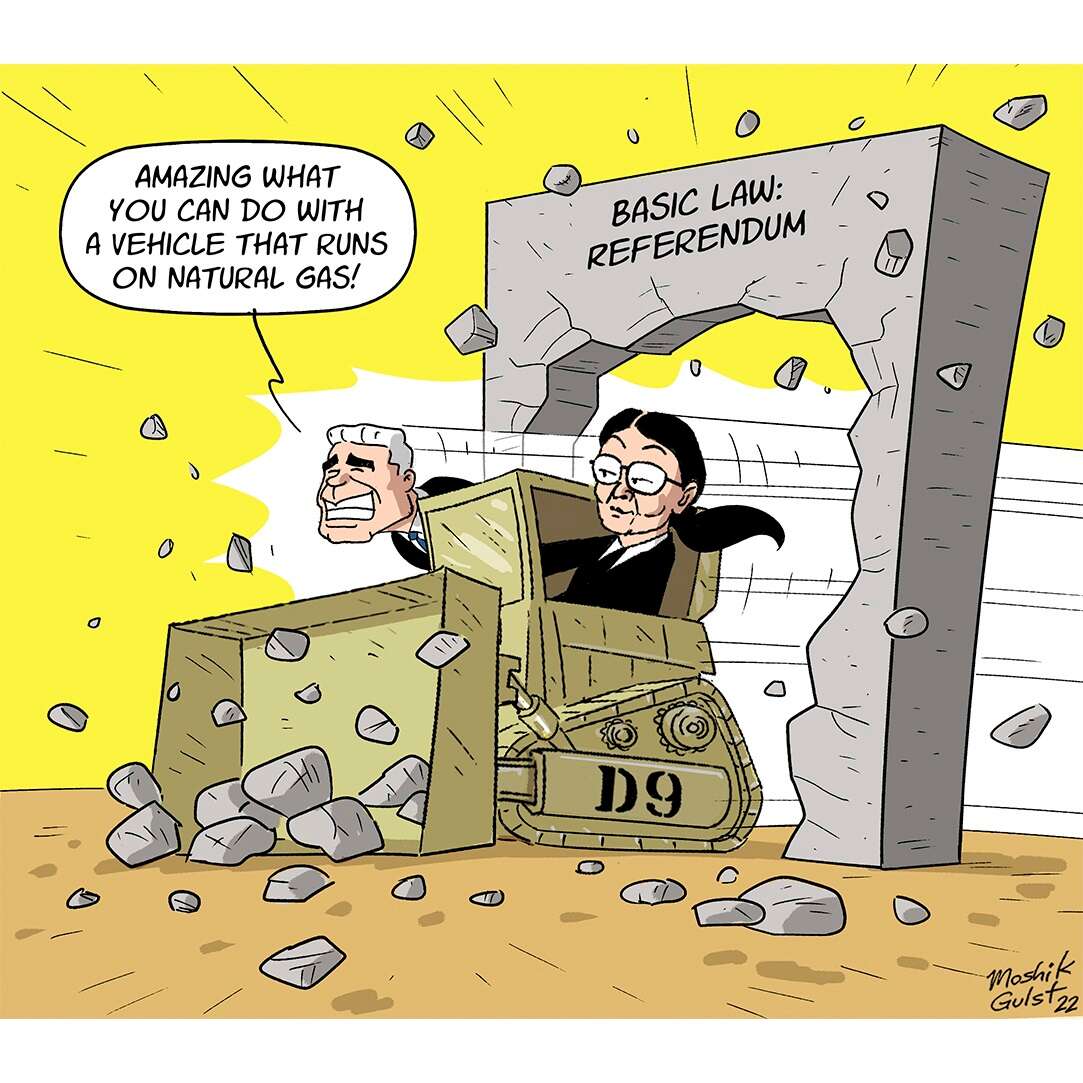Seth Frantzman: How Israel’s elections may impact the Middle East
As Israelis voted for the fifth time in less than four years, the region could greet these latest elections with a shrug. After all, another election will probably come in a year or so.The Commentary Magazine Podcast: Will Bibi Make a Comeback?
However, the current government of Prime Minister Yair Lapid and alternate Prime Minister Naftali Bennett made major strides in the region. Lapid, Bennett and Defense Minister Benny Gantz put a premium on public meetings and outreach around the Middle East, including hosting such important forums as the Negev Summit.
On the other hand, Lapid also rushed into the agreement with Lebanon days before the election. This matters, and on policies from Ukraine to Turkey, there could be shifts after the election that impact the region.
Israel and Turkey
One of the most important shifts in the last year has been Israel’s decision to work with Turkey. After years in which Ankara had bashed the Jewish state, comparing Israel to Nazi Germany and backing Hamas, Turkey sought to change its tone over the last year. This resulted in numerous high-level meetings and visits.
The normalization between Ankara and Jerusalem may be only on the surface, because Turkey’s ruling AKP Party is the same party as before the reconciliation. But it could also mark a shift that continues after the election.
It’s clear that with Turkey, there was a choice to normalize relations after former prime minister Benjamin Netanyahu left office. Ankara had increased its extreme rhetoric and anti-Israel behavior during Netanyahu’s 10 years in power. This included the launching of the Mavi Marmara flotilla, as well as hosting Hamas leaders and vocal threats to “liberate al-Aqsa.”
Ankara’s behavior occurred against the backdrop of close Turkey-US relations during the Trump administration and its increasing role in Syria. It’s not entirely clear what led to Turkey’s increasingly anti-Israel behavior, especially considering that in the early 2000s, the countries had managed to continue amicable relations despite the differences between the AKP and Israel. The party is rooted in the Muslim Brotherhood and is close to Hamas ideologically, making it naturally hostile to Israel.
During the Netanyahu era, there was little chance of reconciliation with Turkey. Netanyahu always believed that Israel had to exude strength in the face of threats, and he wasn’t afraid to critique Turkey’s actions.
Today, both Ankara and Jerusalem have shifted rhetoric, and this has enabled major changes on the political and diplomatic fronts.
Dan Senor joins the podcast today to map out five scenarios for the Israeli election results—Israel is voting today. And then we discuss why professional Republicans seem a little more anxious than thrilled about the clear pattern in the polling about what’s going to happen next Tuesday here in the American elections. Give a listen.
Netanyahu's peace plan with the Saudis may also end the Arab-Israel conflict
Israel’s Leader of the Opposition Benjamin Netanyahu has broken his silence - giving his nod of approval to examining the Saudi-proposed Hashemite Kingdom of Palestine solution (Saudi Solution) :Hundreds of Jews visit Temple Mount on election day
“I think the big prize is peace with Saudi Arabia, which I intend to achieve if I go back into office… The rise of Israeli power facilitated the Abraham Accords, and the continual nurturing of Israeli power will also nurture a broader peace with Saudi Arabia and nearly all of the rest of the Arab world. I intend to bring the Arab-Israeli conflict to a close.”
Peace with Saudi Arabia and ending the Arab-Israeli conflict will require Netanyahu to successfully negotiate to make the Saudi Solution - published in June - acceptable. That would see:
· Jordan, Gaza and part of Judea and Samaria ('West Bank') being merged into one territorial entity to be called The Hashemite Kingdom of Palestine - with its capital in Amman - not Jerusalem
· Abandonment of the 74 years-old Palestinian Arab demand to return and live in Israel
· Recognition of Jewish sovereignty in part of Judea and Samaria ('West Bank') for the first time in 3000 years
· No new Palestinian Arab state between Israel and Jordan
Yesh Atid Party Leader - Yair Lapid, Blue and White Party Leader - Benny Gantz - and Labor Party Leader - Merav Michaeli - have all rejected the Saudi Solution outright - aligning their respective parties policies with President Biden’s to continue pursuing the failed unachievable two-state solution first dreamt up by the European Union in 1980 and endorsed by the United Nations in 2003.
The leaders of all other Israeli political parties have yet to comment on the Saudi Solution.
Netanyahu, however, indicated his thinking was clearly in sync with the game-changing proposals.
Twice the number of Jews visited the Temple Mount in Jerusalem on election day this year compared to last year, the Temple Mount Administration reported on Tuesday afternoon.
“The visitors said they took advantage of the election day vacation to go up and visit the site where the House of God stood,” the administration said in a statement. “It reminds them of how fortunate they are to be in a Jewish state, voting for a Jewish government.”
Nearly 300 Jews had already visited the mount by 10:30 a.m., the administration said.
Visits to the Temple Mount by Jews have been on the rise over the past year in general.
Some 47,988 Jews visited the Mount last year, in Hebrew year 5782—a 94% increase over the year before.
Anything about the Palestinian Auth, which is in the 18th year of Abbas’ 4 year term, without elections? No, didn’t think so. Just more lies and Jew hate from @hrw? https://t.co/0jkRZI9fWq
— Arsen Ostrovsky (@Ostrov_A) November 1, 2022


































